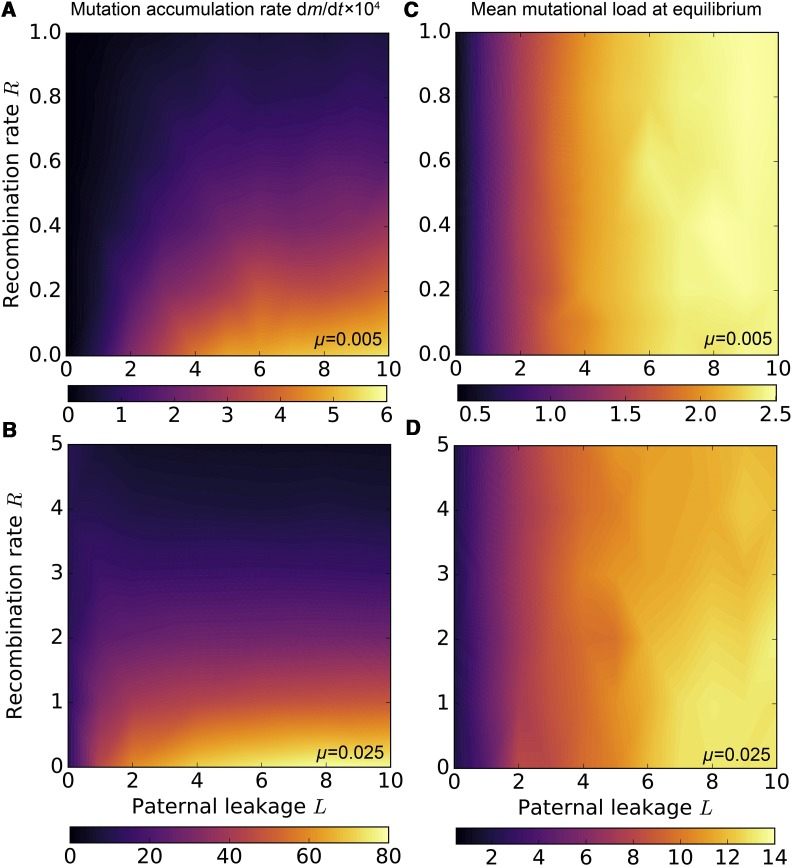Figure 5.
Tradeoff between the antagonistic effects of paternal leakage and mitochondrial recombination. Homologous recombination slows down the accumulation of weakly deleterious mitochondrial mutations, but requires paternal leakage, which itself—in the absence of recombination—promotes mutational erosion (A and B). With high µ and R, paternal leakage can reduce the rate of mutation accumulation relative to uniparental inheritance (B, dark regions). Nevertheless, mitochondrial mixing in the form of paternal leakage L increases the mean mutational load at equilibrium, regardless of mitochondrial recombination (C and D). Parameter values are µ = 0.005 (A and C) or µ = 0.025 (B and D), population size N = 500 (A and B) and N = 10,000 (C and D), and M = 20. The number of mutation in the least-loaded genome class is mLLC = 0 in (C and D).

